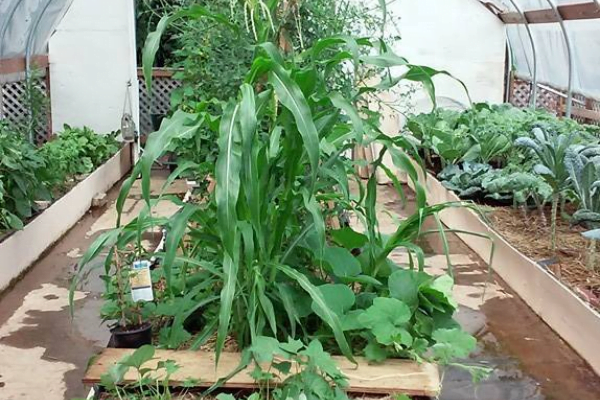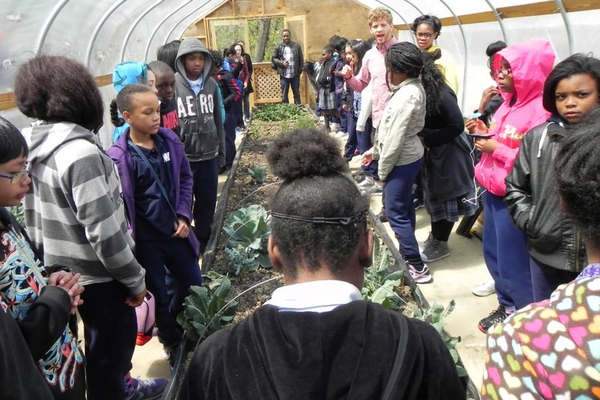11/06/2014

Overbrook Environmental Education Center Hoophouse
Written by Aaron Marks
Two new Acts signed into law by Governor Corbett on October 22nd have made it easier – and cheaper – to cultivate land in your community.
If you’ve ever built greenhouse, hoop house, or high tunnel to protect your produce, then you may know what a pain and cost it is to acquire signed and sealed plans by a “registered design professional” (engineer, architect, etc.) necessary to secure all the necessary zoning and building permits.
Act 159 makes the process of building protective structures simpler and more affordable. Under the old law, agricultural buildings were exempt from the requirements of the Uniform Construction Code and, thus, exempt from Philadelphia’s building code. Act 159 expands the definition of agricultural buildings to include buildings used to “grow . . . agricultural or horticultural products, like greenhouses, hoop houses, and high tunnels. Thus, the Act lets you erect these protective structures without obtaining a building permit.
You may still need a zoning permit, but a zoning permit is an easier and less expensive process than obtaining a building permit, in part because you can draw up the plans yourself. You do not need an architect or engineer to do it.
The other important change in law, Act 157, is all about gaining access to privately owned and abandoned land through a conservatorship. What is a conservatorship? In short, it’s a way for people, businesses, or organizations to assume control of a vacant, abandoned property in their neighborhood and develop it for the benefit of the community.
Until now, you could only attain conservatorship of properties with buildings on them. Now, any property that ever had a building (even if it’s been demolished) is fair game. This means that almost any vacant property that meets certain conditions (e.g. its appearance negatively affects the economic well-being of the community, the owner isn’t actively selling it,) can, through a court petition, be secured and transformed into a community garden – legally.
The Act also expands the distance an individual or organization can legally be from a property over which they can attain conservatorship. Now, instead of one mile, people, businesses, and organizations can petition for conservatorship of lots up to five miles away. This might be both a negative and positive amendment as the expansion of these boundaries empowers people to maintain and develop land in their greater community, but also requires less of a close geographical connection to a particular parcel.
As an added bonus, Act 157 also lets you assume conservatorship of adjacent properties owned by the same negligent owner. This means if there are several adjacent abandoned properties in your community, you can get conservatorship of them all with a single court petition.
These two Acts are victories for growers in Philadelphia and across the Commonwealth. To learn more details about conservatorship, including a detailed how-to guide check out our Pathways page at this link.

Overbrook Environmental Education Center-Earth Day 2013


